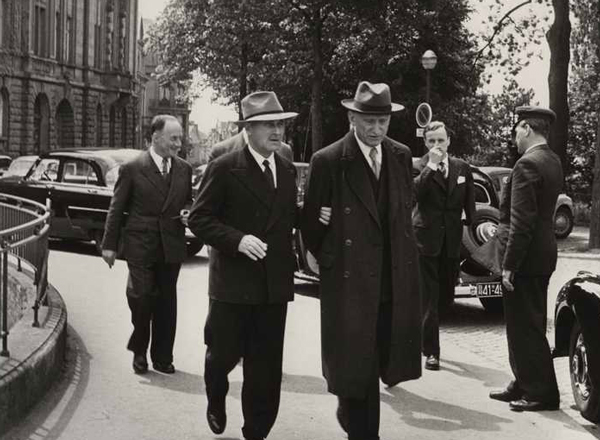
On the 75th anniversary of the Schuman Declaration, it is imperative to reflect on the legacy of this peaceful revolution and the lessons it teaches us for our actions today.
We all know the story of the Schuman Declaration: on May 9, 1950, Robert Schuman, based on an idea put forward by Jean Monnet, proposed pooling French and German coal and steel resources under the authority of an independent High Authority, thus making any attempt by one country to dominate the other unthinkable and impossible. This newly-created interdependence was to be the ferment on which an ever wider and deeper European community could gradually be built. Because it worked, this moment is considered the founding act of the European Union.
But this peaceful revolution didn’t happen by chance. It was the fruit of a clear vision, decisive action and a rigorously thought-out method. At a time when Europe is once again in need of radical, transformative action, it is essential to understand how the events of 1950 came about.
A clear vision had been formulated. As early as 1943, while in Algiers, Jean Monnet laid the foundations of the Schuman Plan in a famous note dated August 1943. In it, he forcefully expressed the need to unite the European nations after the war: if they remained divided, small and weakened, they would be unable to meet the needs of their populations, which would reopen the way to nationalism, the spirit of domination and, inevitably, war. To avoid this, Europeans had to accept a certain degree of shared sovereignty, in exchange for a solid union enabling them to create together a new force, capable of meeting the challenges of the post-war world. The principle of an economic and industrial union, based in particular on shared steel production, was already clearly expressed in this 1943 note.
A moment of action was seized. While there was much talk of Europe in the post-war years, Monnet remained on the sidelines. He was waiting for the right moment to implement his 1943 manifesto. That moment arrived seven years later, in the spring of 1950, with the dangerous crystallization of tensions between the two blocs, and pressure from the United States and the United Kingdom, who expected France to propose a “solution to the German problem” before May 10. The essence of Monnet’s approach is summed up in this note written at the time: “We must change the course of events. To do this, we must change behavior. Words are not enough […]. Action must be radical, real, immediate and spectacular.
The psychological and material context was transformed by a single action. Monnet’s radical and spectacular action was not a violent revolution. Nor was it an institutional revolution. It was a revolution of the mind. West Germany was perceived as a stake in the opposition between the two blocs? It was to become a link. Coal and steel were instruments of industrial and military domination between France and Germany? They were to become a common asset, managed jointly in the interests of all. Did the French and Germans see each other as hereditary enemies? A new vision had to be built: that of a common future, based on peace and shared prosperity. By creating a clear vision and a new reality, mentalities changed, and previously unthinkable transformations became possible.
Even today, as in the spring of 1950, we need “radical, real, immediate and spectacular” action. The time bomb on which the world rests must be defused as a matter of urgency. Only Europeans can do it, and in Europe, it’s probably the French, Germans, Poles and British who have the capacity. We must reject the emerging paradigm of opposition between blocs based on the law of the strongest. We must expose the lies of nationalist parties who claim to have the solutions. And we must propose an alternative narrative.
The time to act is NOW.
A clear vision needs to be formulated and conveyed with far greater force and conviction, not just for Europe, but for the world Europeans wish to defend.
A bold gesture must be conceived and unleashed, capable of unblocking the situation, putting the system back in motion and opening up new perspectives. As Monnet wrote in his Memoirs: “Everything becomes possible as soon as we focus on a precise point that leads to everything else.” It is the responsibility of everyone – including civil society – to think about what this gesture might be, rather than simply calling for action.
Courageous politicians have to rise to the occasion and be prepared to take personal risks. Nothing bold will happen unless our European leaders decide that this is their legacy, even if it means jeopardizing their political future. That was the courage of Schuman and Adenauer.
We must live up to their example.